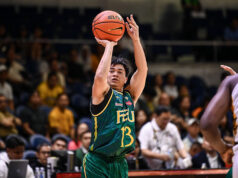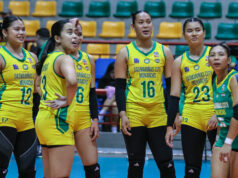A bad shot was how Paul George characterized Damian Lillard’s three-point buzzer beater that booted the Thunder out of the 2019 National Basketball Association Playoffs. He actually doubled down in his post-mortem, referring to it as “a bad, bad shot.” And had Game Five of their first-round series operated in a vacuum, he may well have been right; after all, it was taken from 37 feet out and reasonably contested despite separation efforts through a “pound dribble,” sidestep, and timely gather.
From Lillard’s vantage point, though, the second series-deciding winner of his career was nothing out of the ordinary; it was well within his range, and one of countless other long shots he has attempted, and, made, throughout his hoops career. The numbers bear him out; his percentage of makes on tries from beyond 30 feet during the regular season was far superior to the league norm from anywhere in three-point territory. More tellingly, it approximated that of George, who, in refusing to give due credit, thus wound up indirectly engaging in self-criticism.
What’s more, Lillard was especially locked on the other day. He hit the ground running, coming up with 34 markers at the half and continuing to exhibit a silky smooth touch despite the Thunder’s obvious overloads on coverage in an effort to prevent him from scoring. No doubt, he was stoked by the incessant trash talking of counterpart Russell Westbrook heading into and throughout the series, and resolved to deliver his response. He did, and, as he noted, it was “the last word.” And it was amplified by the stakes. Was it “a bad, bad shot”? Not if he had hitherto hit nine of 17 from three, including three of five from 30 feet out. Not if he was at 47 going on 50, with the prime opportunity to make a statement.
Hindsight always makes for perfect vision, but, really, Lillard couldn’t have scripted the outcome any better. He certainly proved he could walk the walk much better than Westbrook could talk the talk. On a night when the latter took a whopping 31 field goal attempts and missed 20 even though George deserved to be the Thunder’s primary option, he showed how and why he was first among equals. Fittingly, he provided the drama as well. He walked the ball up instead of calling a timeout after an ill-advised drive by his arch rival early in the shot clock. And then, with George watching his every move, he waited for the right time to strike.
To comprehend how confident Lillard was in his stroke, one need only see his countenance in the aftermath. He didn’t celebrate immediately. He nonchalantly turned and waved the Thunder bench goodbye, and, when his teammates mobbed him, he saw fit to look beyond the mass of bodies and into the television camera with a blank look. Nope, it wasn’t “a bad, bad shot.” And, yup, he’s a bad, bad man.
Anthony L. Cuaycong has been writing Courtside since BusinessWorld introduced a Sports section in 1994.



